JOURNEY WITH JESSICA
The Church Needs Disability Theology.
This month I decided to share a part of my recent sermon on 1 Corinthians 12:12-26, “One Body, Many Parts” as I think it illustrates how our entire “Church Body” needs disability theology.
In the time before the COVID years, I moved back to Seattle and returned to a struggling parish. Leadership decided to hold an epic Advent Festival to revitalize the church and bring in the community. I was tasked with volunteer management and set myself a personal goal of getting as close to 100% participation as I could. I believed every single person had a role to fill in this parish and I wanted to discover their gifts and connect them to our mission.
Starting in October, I made connections— learning about people’s struggles, concerns, and gifts. I worked with them to find ways they could participate, realizing each person brings their own unique gifts and challenges. I created a wide range of volunteer opportunities for different gifts, schedules, and bodies. I put together packages for volunteers to affix labels and set up craft kits people could assemble at home. I organized setup through an entire week to fit more people’s schedules. I engaged children in stuffing goody bags and teens posting advertisements. I created a sensory room— both as an accommodation for our guests and as a place where specific parishioners that struggled with the hustle and bustle could volunteer.
To be honest, it would have taken me less time to do many of these tasks myself. I knew that. That wasn’t the point.
In my years of working for disability inclusion, I’ve learned to find joy in accommodations — watching people participate and thrive in community, after years of being told they “can’t.” By considering each individual person as a valuable member of the whole, we become bigger, stronger, and richer. In conversation with those slow in speech, I’ve learned to take the time to really hear what people are saying, focusing on them, not my response. In giving grace to what the disability community calls “Crip Time” (the extra time required for disability-related needs), I’ve learned to slow down, focus on relationship, and be intentional. I make sure there isn’t something I might perceive as a small change that would make a big difference in that individual’s life.
Most of all, I learned, through personal and relational experience, that the worst part of disability is not the complications of the disability itself, but the accompanying feelings of being useless, worthless, unappreciated, and unloved. As Henri Nouwen said, “It is much easier to accept the inability to speak, walk, or feed oneself than it is to accept the inability to be of special value to another person. We human beings can suffer immense deprivations with great steadfastness, but when we sense that we no longer have anything to offer to anyone, we quickly lose our grip on life. Instinctively we know that the joy of life comes from the ways in which we live together and that the pain of life comes from the many ways we fail to do that well.”
Whether people in our Church Body identify as someone with a disability or not, disability doesn’t discriminate. As I made my calls, inquired, and truly listened to why parishioners were hesitant, so many were feeling that they no longer had anything to offer. Many because of age. Others because of a loss of identity through life changes. People didn’t believe they would be welcomed and appreciated as the person they are today— which is not the person they were 30 years ago.
I think that can be extended to the whole church. The church is not who we were 30 years ago— or even four years ago. The world has gone through a major medical crisis. Our church body is feeling it. I’d even venture to say, the Body of Christ is disabled. How we used to do things is not working. The assumption that we can continue to go on at status quo is harming our members, exhausting the body and is not working. WE are not who we used to be. And that might sound scary… but I see it as an opportunity.
From years of working in disability spaces I know the God-given ingenuity, creativity, and resilience of God’s people. We all saw it at work during the pandemic— society and the church adapted. The world health crisis revealed those gaps in the structure, and we found ways to patch them. Now the crisis is over and, like it or not, the Body of Christ along with the world we live in is forever changed
As leaders, it’s time to listen and consider how to accommodate the members of our body. Not just accommodate out of obligation but find joy in the process of identifying each member’s gifts and equipping them to fully participate in the way best for them. We must realize that “full participation” will look different for each person. Truly listen, ask questions, don’t assume another’s thoughts, feelings, or desires align with yours. Be patient and remember each person has so much more going on under the surface. Be flexible and trust they are doing the best they can with what they have today.
Christ’s body is a broken, disabled body. We are reminded of that every week. We are broken people, joined together each week to celebrate that broken body. In the Incarnation, shared between us broken people, we become Whole— supporting each other’s weakness and lifting up each other’s strengths. It’s in fully realizing our brokenness we have potential for empathy and an invitation to reconnect our lost members to the whole.
Bridge Blogger Jessica Thompson
Categorised in: Journey with Jessica
